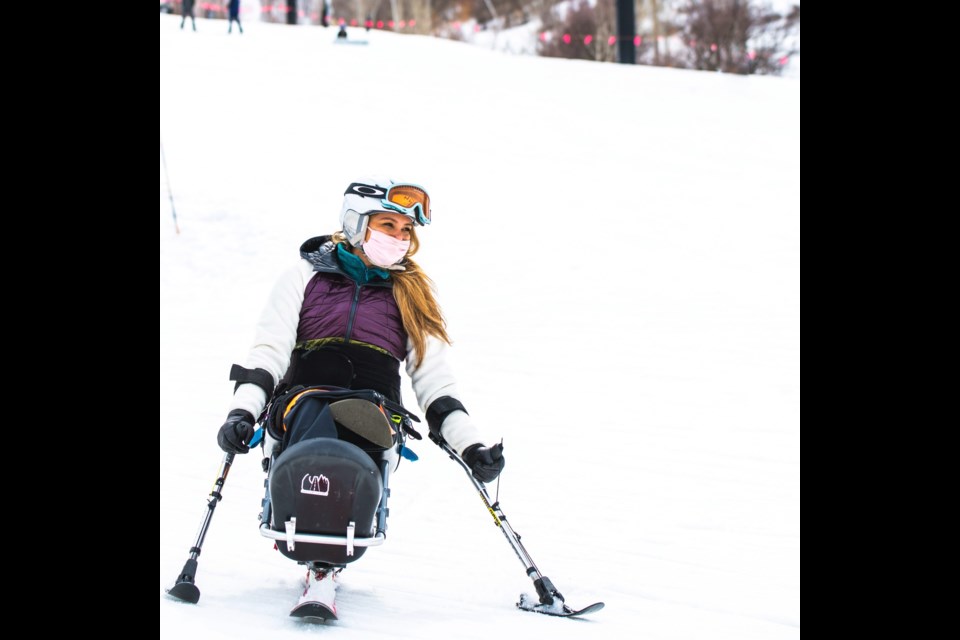As if on cue, a passerby stops the moment Marcela says the word “paralyzed.”
“Wait, you’re paralyzed? But you’re …” the stranger says, standing next to our table. What does he want to say? You’re too pretty? You’re too young? You’re too bright-sounding? You have legs? (Though one is definitely prosthetic.)
All of those remarks and more are things Marcela has heard countless times — as have, undoubtedly, others among the approximately 300,000 people in the country with spinal cord injuries.
Instead of finishing his thought, the stranger shifts his eyes awkwardly and fishes for words. “Oh. Um … well … that sucks, actually,” he says and briskly walks away. Marcela and I look at each other for a few seconds. She knowingly half-smiles. I’m still thrown.
Less than an hour earlier, I had grabbed a small patio table at the Starbucks Reserve in Legacy West but quickly switched to a bigger table — one with the familiar, often casually overlooked wheelchair symbol on it. When Marcela Marañon arrives a few minutes later, I hear her first, greeting me with a bright “Hi Jordan!” despite the inevitable jet lag of just returning from Paris.
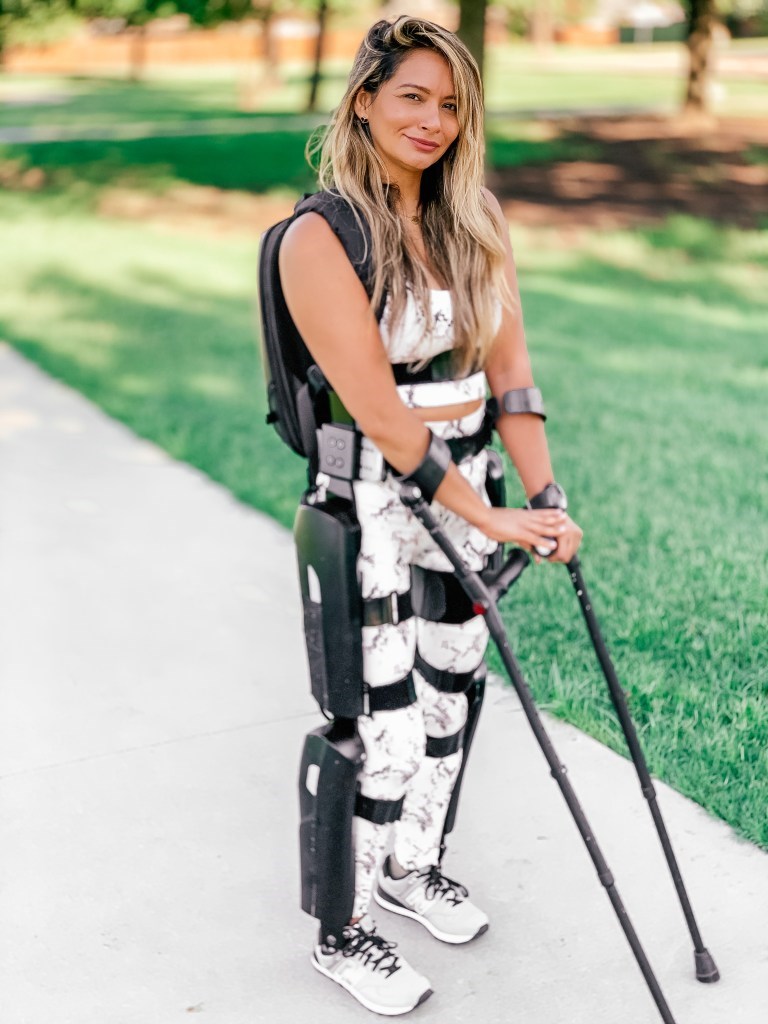
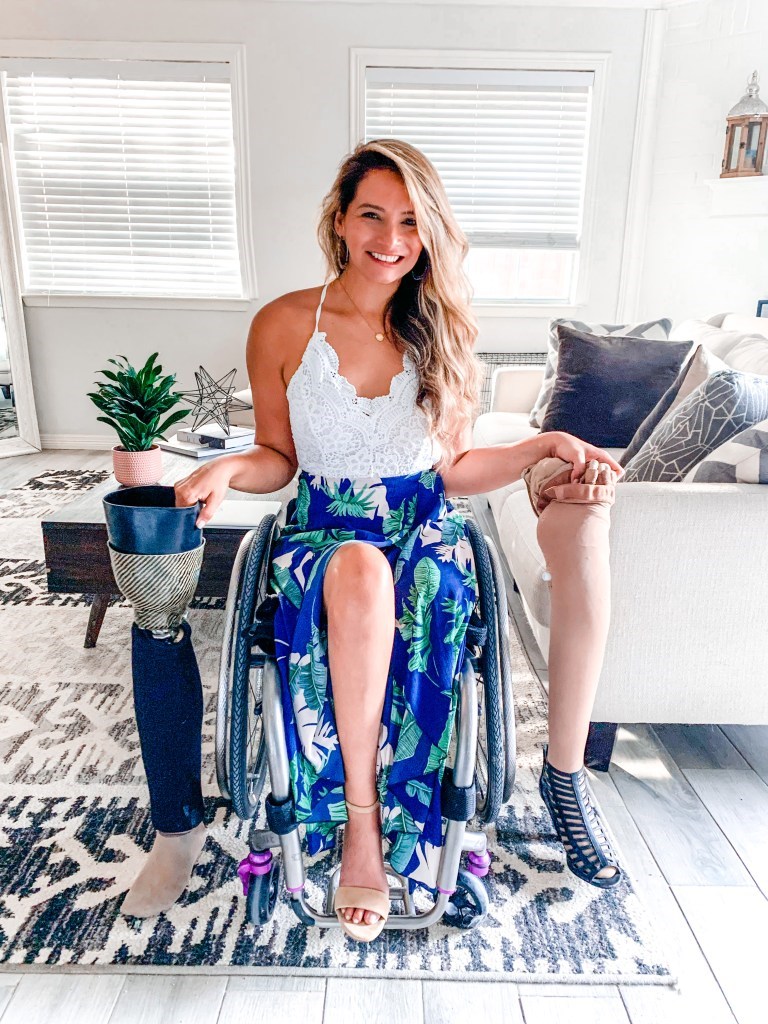
Plano-based Marcela is best known for her social media presence, particularly her Instagram and TikTok. Her username for both is @TheJourneyOfABraveWoman. No username is more fitting. She is paralyzed from the waist down and an amputee from a car accident in Dallas when she was 20. Her content focuses on exploring fashion and travel as a disabled person, staying motivated to live a fuller life regardless of ability, and making the world a more accessible place for other disabled people through awareness and education.
Marcela explains that the purpose of her accessibility-centered content is to show that a full life with opportunities is possible for a paralyzed woman. She wants her audience, abled or disabled, to say, “If she can do it, I can do it.”
Renewed Independence
After high school in her native Peru, Marcela moved to Plano and enrolled at Collin College. But on September 2, 2002, she was in an accident with a drunk driver. Her boyfriend, a fellow passenger, died. She lost her leg and was paralyzed from the waist down. Marcela was only 20.
The injury Marcela sustained was a thoracic (T12) and lumbar spinal injury. She describes the pain she felt as the most “excruciating pain a girl could ever go through.” But with the pain and sense of lost identity came the spark of a lifelong pursuit of renewed independence. Marcela went on to receive her bachelor’s degree in communications, get married and become a mother to one daughter.
Marcela was doing regular rehab at the University of Maryland Rehabilitation and Orthopaedic Institute in 2014 when the hospital’s PR department took note of her story and model-like features. They wanted her to be an ambassador for the new pioneering exoskeleton technology that became ReWalk Robotics.
The exoskeleton is controlled by a watch-like apparatus on Marcela’s wrist. Three buttons for three modes: sitting, standing and walking.
The sense of walking again for the first time was, as Marcela describes it, amazing. She posts about the exoskeleton’s role in her daily life on TikTok regularly.
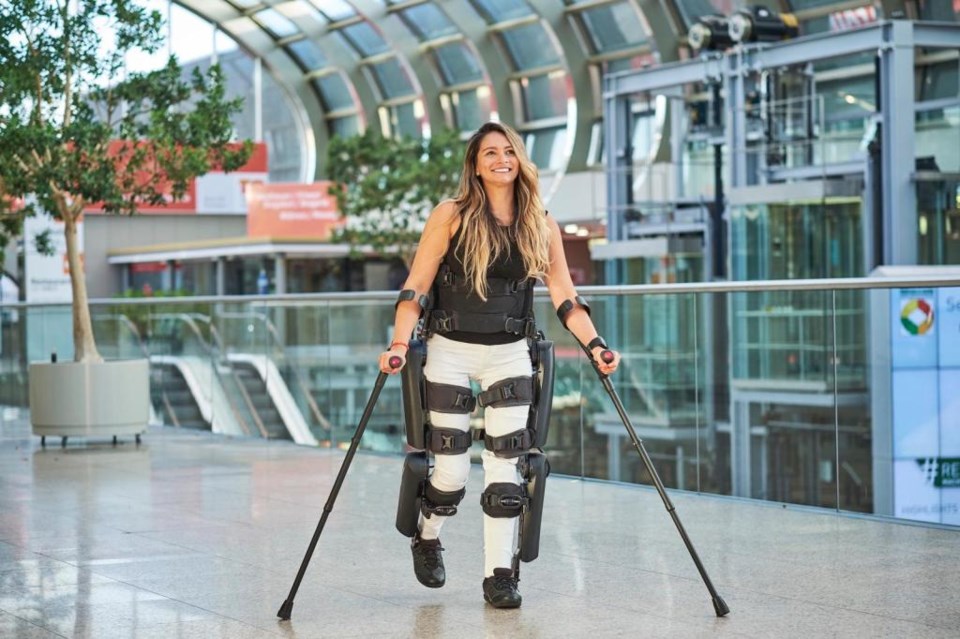
“It will never replace my legs, and there are things in my daily life that I can do faster in my wheelchair, but I love the option of freedom it gives,” she says. “There are also a lot of health risks that come with being paralyzed, like blood clots, urinary tract infections and other infections. This helps me stay healthy.”
In 2018, Marcela initially entered social media with a commitment to healing herself from a painful divorce through travel and new experiences.
Traction for her content really hit in 2019 when she traveled to places like France, Peru, Japan and India with an eye out for accessibility features in each country to highlight to her followers.
She advocates for a population that is both seen and unseen. Wherever she goes, she brings positive attention to the accessible traits of a destination. She tells me that Israel is doing a great job with wheelchair accessibility, and Dubai is futuristic in its rate of accessibility.
“We need to keep pushing,” she says. “Accessibility is not only ramps and restrooms. It’s also technology. What about web access for blind folks? We need more tools to help us discover the world like everybody else.”
Arguably, her most notable destination was Tanzania, where she climbed Mount Kilimanjaro.
“I didn’t know what the weather would really be like. It was so cold, and I didn’t bring enough clothes!” recalls Marcela, who used an off-road wheelchair that was originally designed for hiking. The steep mountain meant that the independent Marcela was heavily reliant on her climbing team.
“It was difficult being dependent on porters and guides. It took us eight days to climb the mountain. I cried at the top, just so grateful for the opportunity. It opened so many doors for me and made me realize that when you have the willingness to move forward, you will always learn a lesson from it.”
The Ongoing Journey
“Before becoming paralyzed, I was lost,” Marcela says with striking clarity. Thinking back to the stranger who stopped at our table earlier, she exudes pity rather than judgment. “He didn’t know how many things I’ve done in my life. His first comment was ‘that sucks.’”
It fuels Marcela rather than dragging her down.
“Disability is viewed like a curse, as if you don’t have value anymore,” Marcela goes on. She attributes the limited exposure people grow up with to the knowledge gap that exists surrounding the disabled population’s actual experience.
“I got married, I became a mother and later, I traveled,” Marcela says. “When I started out, people would tell me, ‘everything happens for a reason.’ That really doesn’t help much because you don’t know what’s next. But when I finally came out of my shell and really started living, trying new things out there that I had never thought I could try, that’s when things started to change.”
In addition to sharing moments from her life on her social media, Marcela also promotes various important resources and programs for people with disabilities. She knows that those have the potential to provide a greater sense of meaning in life to people with spinal cord injuries. They may not know what they’re capable of yet … but Marcela does.
She’s had people with spinal cord injuries and amputations reach out to her with their own stories. They make admiring comments, like, “I didn’t think I could wear skirts in a wheelchair” or “I didn’t know you could travel as a paraplegic.” Marcela sees these comments as the seeds of inspiration for her followers to discover their own potential to live a fuller life.
She’s forthright and open on social media, constantly engaging with her followers. However, she also maintains a fairly private life. She doesn’t post anything with her teenage daughter out of a sense of protectiveness and to respect her privacy from an early age.
“I need lots of energy to keep moving forward. I need the support of my friends and family,” Marcela says. “But I also have to remember the purpose and meaning of my life. It’s OK to have bad days. They can actually help you in positive ways to do better and make better decisions for the next day.”
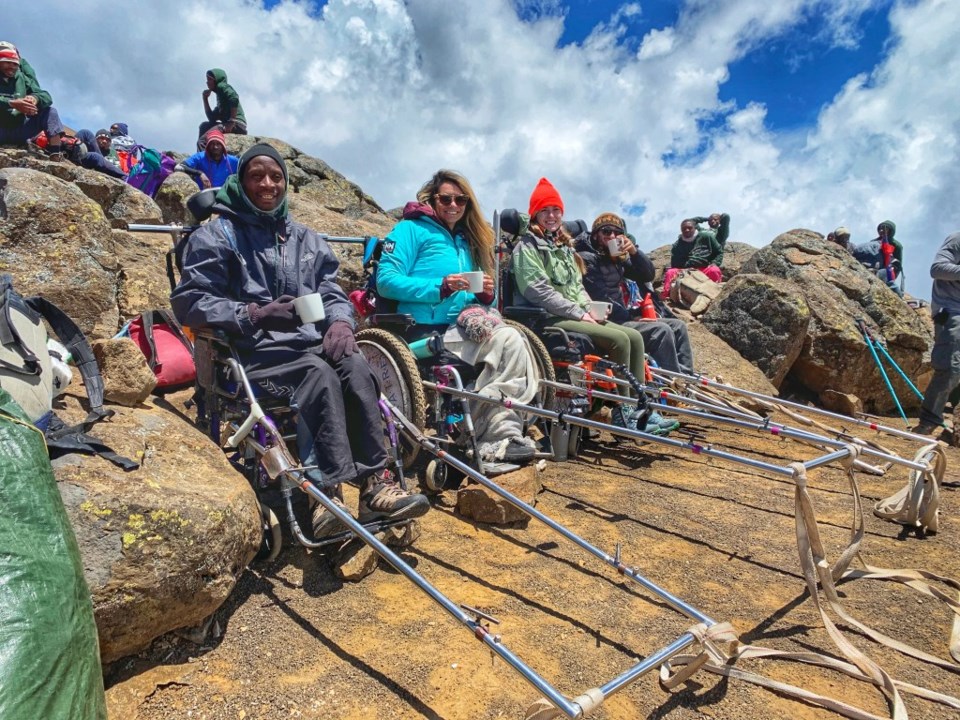
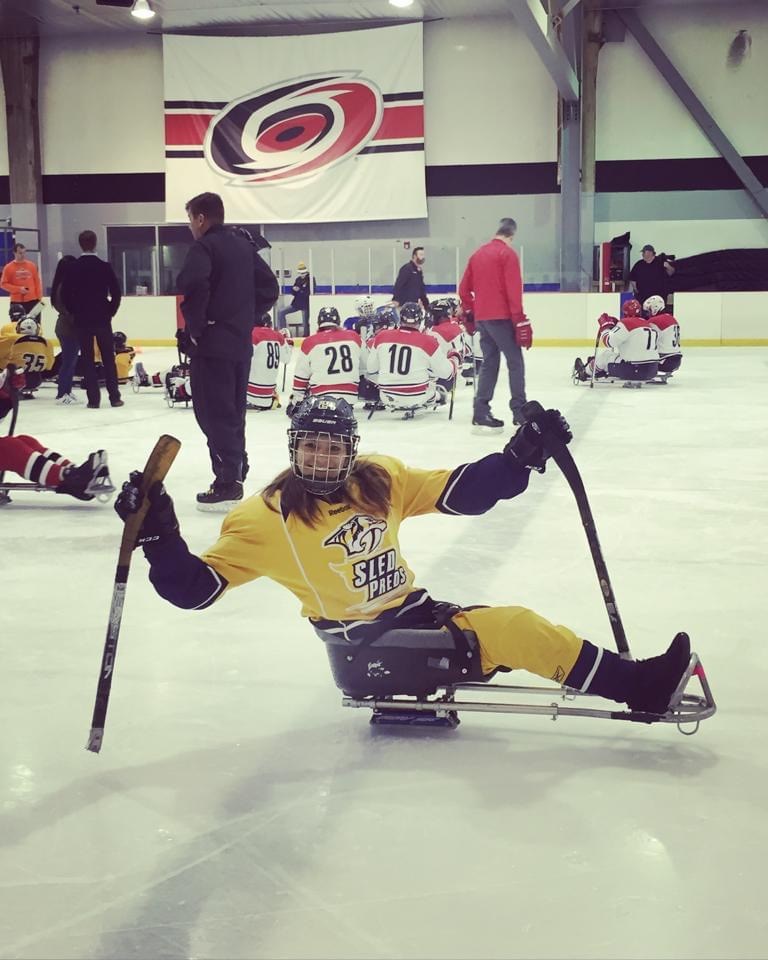
As she continues trailblazing on social media, collaborating in exciting new partnerships and trekking around the globe, she wants to work with more big brands to garner greater visibility for the story of perseverance and hope she’s living out.
“Wherever my story is featured, it helps me tell my followers that you can still have a pretty cool life with a disability.”

